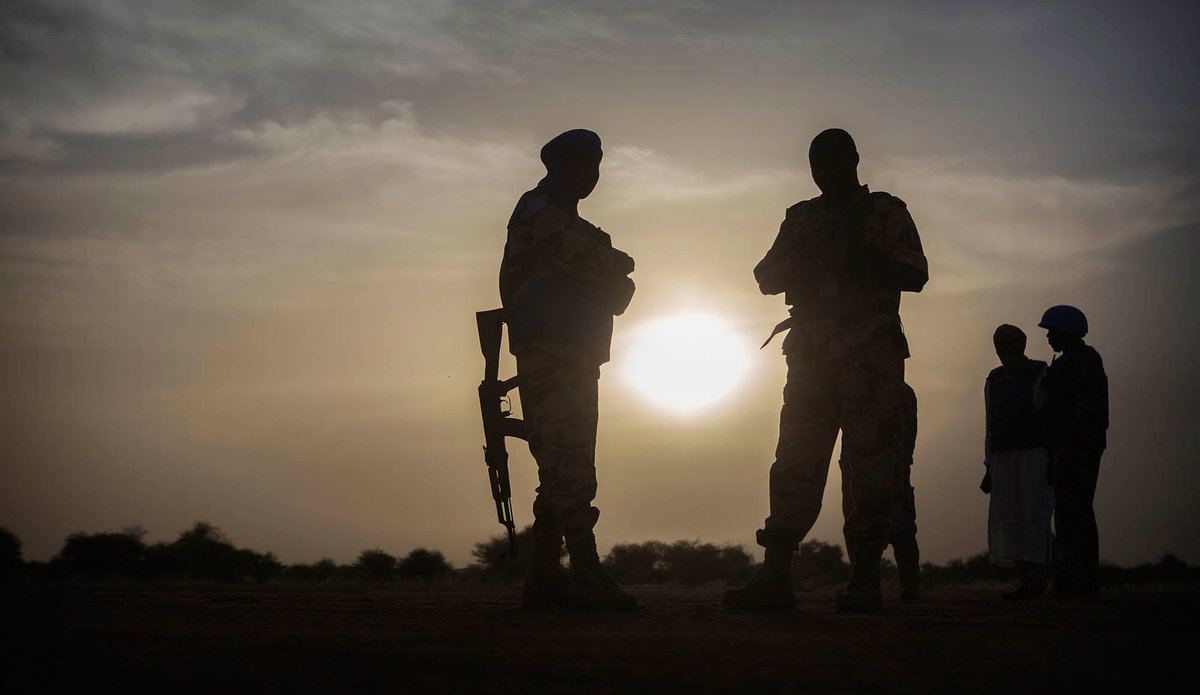“Many of my friends have died here in Mali. We lived together, ate together. Unfortunately, they lost their lives here,” said Chief Sergeant Mahamat Tahir Moussa Abdoulaye.
The UN peacekeeping mission in Mali, known by its French acronym MINUSMA, has become one of the most dangerous peace operations in the Organization’s history. Since 2013, 155 peacekeepers have lost their lives in the West African nation.
“Many of those who came here in this UN Mission are dead, others will have the scars of their wounds for life,” Tahir said, referring to his fellow Chadians who have served with MINUSMA.
Established in 2013, MINUSMA supports the Malian peace agreement by helping to restore State authority, advance diplomacy, strengthen security and promote human rights.
In the true spirit of the United Nations Charter, Chad has stepped up to provide protection to people in conflict USG for Peacekeeping Operations Jean-Pierre LacroixAccording to the Secretary-General’s most recent report on Mali, over the course of 2017, the security situation there worsened and attacks against MINUSMA and Malian defence and security forces increased and intensified.
The Chadians, in particular, have paid a heavy price. As of the end of 2017, of the 57 fatalities suffered by Chadian military and police while serving with the UN, 47 have occurred in Mali since 2013.
“UN peacekeeping – and the millions we serve – rely on Member States of the UN to provide the personnel and resources to ensure that our operations can effectively protect civilians and support political processes in some of the world’s most dangerous and complex environments,” said Jean-Pierre Lacroix, Under-Secretary-General for Peacekeeping Operations. “Our Mission in Mali continues to work tirelessly to help bring peace to the country.”
“In the true spirit of the United Nations Charter, Chad has stepped up to provide protection to people in conflict,” he added. “We pay tribute to the Chadians who have made the ultimate sacrifice in the service of peace, and thank the people and Government of Chad for their continued partnership with the UN and their commitment to peace,” he added.
Given the increasingly challenging nature of today’s conflicts and the high number of recent peacekeeper casualties, the United Nations is actively engaged in seeking solutions that will reduce fatalities, improve the safety and security of our personnel and improve the overall performance of UN peacekeeping operations to protect the vulnerable and nurture a fragile peace.
Before being deployed with MINUSMA, Tahir had already fought against the Boko Haram terrorist group in Chad and Nigeria. “We are born warriors, we are born in war and we have always heard the sound of gunfire.”
But as he tells his contingent: “As peacekeepers, we are not here on a war mission, but on a mission for peace.”
As conflicts have evolved, so too has the role of peacekeeping operations; once required to monitor and observe ceasefires, today’s peacekeeping operations must perform a range of functions, including protection of civilians, promoting the rule of law, upholding human rights, supporting credible elections, building institutions of governance, supporting disarmament efforts and minimising the risk of unexploded ordinance.
Chad is one of the 20 largest contributors of uniformed personnel to United Nations peacekeeping operations, with more than 1,400 troops and police deployed in three missions around the world: Mali, the Democratic Republic of the Congo and Haiti. Pictured, a Chadian military peacekeeper on patrol in northern Mali. UN Photo/Sylvain Liechti
As part of the UN Multidimensional Integrated Stabilization Mission in Mali (MINUSMA), Chadians strive daily to save lives in one of the world’s most dangerous peacekeeping operations. Forty-seven Chadians have been killed in Mali in recent years. UN Photo/Sylvain Liechti
The Chadian troops protect convoys in the most dangerous regions controlled by terrorist groups. Pictured, officers checking for explosives. “We cannot go for 200 kilometers, 300 kilometers without being blown up by a mine,” said Colonel Abdelsalam Malick Yacoub, Commander of the Chadian Contingent in Kidal. UN Photo/Sylvain Liechti
Patrols last throughout the night, with troops on duty stopping only to eat, stretch their legs and pray. UN Photo/Sylvain Liechti
There are 1,379 military and 17 police from Chad serving in Mali under the UN flag. Their mandate is to support the Malian peace agreement by helping to restore State authority, advancing diplomacy, strengthening security, promoting human rights, and supporting national authorities in protecting cultural heritage. UN Photo/Marco Dormino
To accomplish their goals, Chadian troops work closely with the communities they help to protect. Above, Chadian contingent patrols the northern Mali town of Kidal. UN Photo/Sylvain Liechti
The Chadian peacekeeping presence also supports the joint task force comprised of the Group of Five Sahel countries – which also includes Burkina Faso, Mali, Mauritania and Niger – to combat terrorism and organized criminal activity, and promote stability and development in that region. Pictured, Chadian peacekeepers on foot patrol. UN Photo/Sylvain Liechti
‹ ›Today, some 110,000 peacekeepers from more than 120 countries, serve in 15 peacekeeping operations around the world. Operating in highly volatile environments far away from their families, peacekeepers make sacrifices in the service of peace every day.
For Tahir and thousands like him, the reward is in the knowledge that men, women and children in these areas are safer as a result of their work.
This is the first in a series of stories by UN News as part of a campaign highlighting the contributions and sacrifices of the men and women who serve around the world in UN peace operations.
@media only screen and (min-width: 760px), screen\9 { #PhotoHolder3 #PhotoCrop { max-height: 770px; /* sets max-height value for all standards-compliant browsers */ width: 134%; margin-left:-161px; margin-top: -577px; } #story-headline { font-size: 5.3em; line-height: 1.1em; color:#fff; position: relative; top: 50px; margin-left:-1.5em; text-shadow: 10px 10px 10px rgba(0,0,0,0.8); width:50%; xtext-align:right; } #sidebar {display:none;} div#story-content .span8 {width:100% !important} #fullstory p { font-size: 14px; line-height: 1.7em; } strong { font-size: 1.2em; line-height: 1.7em; xfont-family:Georgia, "Times New Roman", Times, serif; } blockquote { font-size: 1.4em; line-height: 1.5em; font-style:italic; width:300px; color:#666; }
